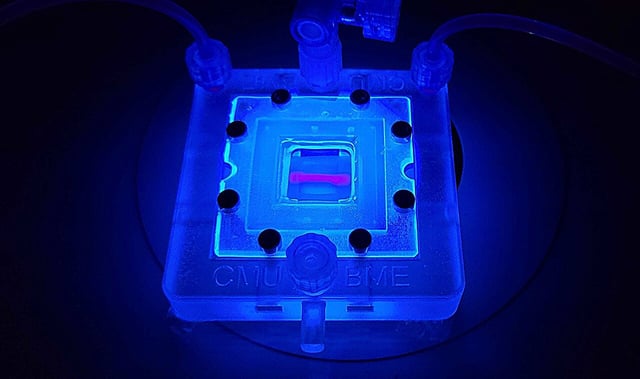Overview
- Carnegie Mellon's Feinberg lab has developed fully biologic tissue models using the FRESH 3D bioprinting technique, which constructs high-resolution collagen-based scaffolds with perfusable channels.
- The research, published in *Science Advances*, showcases centimeter-scale pancreatic-like tissues capable of glucose-stimulated insulin release, surpassing organoid-based approaches.
- FluidForm Bio, a spinout from the Feinberg lab, has demonstrated an in vivo cure for type 1 diabetes in animal models and aims to begin human clinical trials in the coming years.
- The team plans to release open-source designs to encourage global adoption of the technology and is integrating computational modeling and machine learning to optimize tissue development.
- This breakthrough addresses limitations of previous synthetic-based systems by providing biologically compatible structures that closely replicate human physiology.
